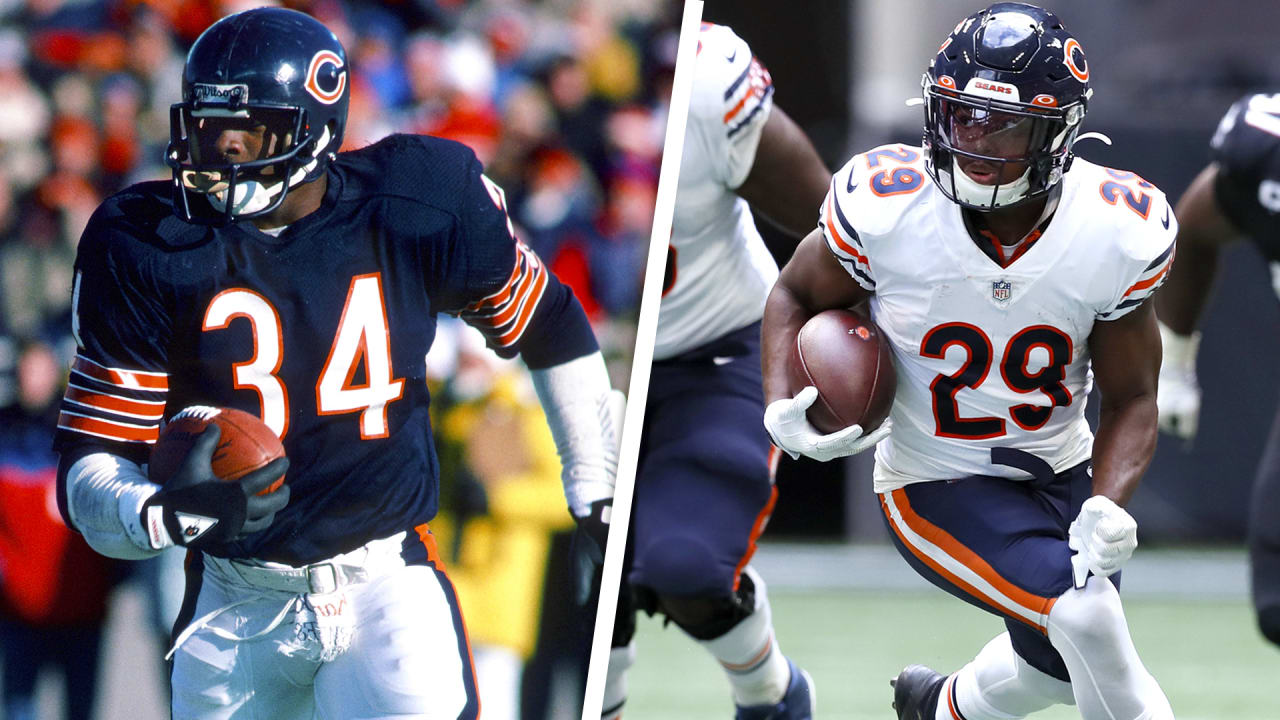Staley Da Bear
Well-known member
- Mar 16, 2019
- 2,085
- 0

Frazier, Big Cat attended HBCUs as well
Other HBCU products who have played for the Bears include cornerback Leslie Frazier (Alcorn State) and right tackle James "Big Cat" Williams (Cheyney State), both of whom were signed as undrafted free agents.
Frazier, who is currently the Buffalo Bills defensive coordinator, appeared in 65 games with 49 starts in five seasons with the Bears from 1981-85, registering 20 interceptions—returning two for touchdowns. Frazier sustained a knee injury in Super Bowl XX that ended his playing career at the age of 26.
Williams played in 166 games with 143 starts in 12 seasons with the Bears from 1991-2002, earning one Pro Bowl selection in 2001. He was converted from defensive line to offensive tackle as a rookie.
Cohen, Simmons represent HBCUs
Two current Bears players attended HBCUs: running back Tarik Cohen (North Carolina A&T) and offensive lineman Lachavious Simmons (Tennessee State).
Cohen went to North Carolina A&T because it was the only school that offered him a scholarship. He soon made the colleges that ignored him regret their decision. Nicknamed "The Human Joystick" because of his video game-like running style, Cohen became the MEAC's all-time leading rusher with 5,619 yards on 868 carries. A four-time all-conference selection who was voted the conference offensive player of the year as a junior in 2015, he rushed for 1,148, 1,340, 1,543 and 1,588 yards in his four seasons.
Cohen set all-time school records with 6,564 all-purpose yards and 61 touchdowns—with 56 coming on runs, three on receptions and two on passes. He also averaged 6.5 yards per carry, caught 98 passes for 945 yards and competed on North Carolina A&T's track team as a sprinter.
Cohen was selected by the Bears in the fourth round of the 2017 draft. In four seasons, he has appeared in 51 games with 22 starts, rushing for 1,101 yards and five touchdowns on 264 carries and catching 209 passes for 1,575 yards and nine TDs. He has also thrown two touchdown passes and averaged 10.3 yards with one TD on 96 punt returns and 20.9 yards on 30 kickoff returns.
Cohen excelled in 2018, helping the Bears win the NFC North with a 12-4 record. He rushed for 444 yards and three touchdowns on 99 carries and caught a team-leading 71 passes for 725 yards and five TDs. In the process, he became only the second player in league history to gain at least 500 yards via rushing, receiving, punt returns and kickoff returns in his first 25 games. Cohen was also named first-team All-Pro and voted to the Pro Bowl as a punt returner after leading the NFL with 411 punt return yards.
In 2019, Cohen rushed for 213 yards on 64 carries and caught a career-high 79 passes for 456 yards and three touchdowns. He signed a three-year contract extension through 2023 this past Sept. 20. Unfortunately, Cohen was lost for the season a week later when he sustained a torn ACL in a win over the Falcons. But he's expected to be ready to return for the start of training camp.
Simmons, meanwhile, was the only HBCU player chosen in the 2020 NFL Draft.
"I take a lot of pride in that because I'm glad I can continue the tradition of HBCU players getting drafted," said Simmons, who was selected by the Bears in the seventh round. "It's an honor to be the only player this year. But there's so much talent at HBCUs. There were plenty of other guys who deserved to be drafted."
Last year marked the first time since 2012 that only one HBCU player was drafted. Three were chosen in 2018 and four were picked in 2019.
Restrictions resulting from the coronavirus certainly didn't help. Due to COVID-19, a combine for HBCU players scheduled for late March in Miami was canceled. In addition, prospects were prohibited from visiting NFL facilities and scouts were not permitted to meet with players at their colleges.
Simmons feels that he's representing all HBCU players. He's also proud to be a native of Selma, Ala., a historic city that was instrumental in the Civil Rights Movement in the 1960s.
On March 7, 1965, about 600 civil rights marchers left Selma heading east toward Montgomery, the state capital. After they crossed the Edmund Pettus Bridge, they were attacked by sheriff's deputies and state troopers—a day that subsequently became known as "Bloody Sunday."
Two weeks later, Martin Luther King Jr. led a march over the bridge to Montgomery. Along the 50-mile trek, the group grew from 3,200 to 25,000. The marches helped generate public support for the civil rights movement, leading to the U.S. Congress passing the Voting Rights Act of 1965.
"I take great pride in being from Selma," Simmons said. "I love my city. Every year we have the Jubilee festival to remember those who marched across the bridge and I always attend the event. There's a great pride in being from here."
